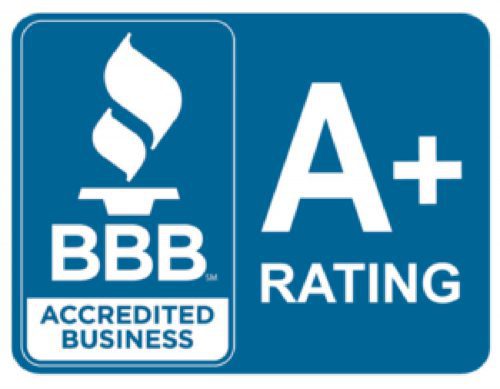Retinopathy Prematurity
Retinopathy prematurity is an eye disorder that can potentially lead to blindness in babies. It causes abnormal blood vessels to grow in a baby’s retina. This condition typically affects premature infants that weigh around 2 ¾ pounds or less and are born prior to 31 weeks gestation. Starting in week 16 of a pregnancy, blood vessels will grow from the center of the developing baby’s retina and then branch outward to reach the edges of the retina between eight months and when the baby reaches full term. But when a baby is born early, the normal growth could be disturbed and that will cause abnormal vessels to emerge.
This condition will usually occur in both eyes. It’s one of the primary causes of visual loss in childhood, and it can result in lifetime issues with vision as well as blindness. Of the 3.9 million infants born in the United States each year, around 28,000 weigh 2 ¾ pounds or less, and around 14,000-16,000 of them are diagnosed with this condition. Then, among those, about 90% of all the cases of this condition are mild and will resolve on their own. There are around 1,100-1,500 infants who need medical treatment, and 400-600 of them end up becoming legally blind. The five stages of this condition go from stage one, which is mild, to stage five, where the baby has a completely detached retina and blindness can occur.
Aside from premature birth, other factors like oxygen deficiency (hypoxia), poor weight gain, transfusions, respiratory distress, slow heart rate, breathing difficulties, and anemia, or a lack of red blood cells, can lead to retinopathy prematurity.
Symptoms of Retinopathy Prematurity
Since the issues are occurring in the eye, it can be hard to recognize them. However, if you or an ophthalmologist notices these symptoms, then your baby might have retinopathy prematurity:
- White pupils
- Vision loss
- Unusual eye movements
If your baby is diagnosed with retinopathy prematurity and loses part of their vision or becomes blind, then other symptoms may present themselves over time.
Treatment for Retinopathy Prematurity
Treatment can prevent vision loss and blindness from occurring. The typical treatment is surgery so that the retina will not pull away from the rest of the baby’s eye, but there are other treatments available. All the treatments include:
- Laser surgery, which is also referred to as photocoagulation or laser therapy, where small laser beams are used to scar the peripheral retina.
- Injection, where the doctor will inject medicine into a baby’s eye. This may be done in conjunction with or separately from laser surgery.
- Vitrectomy, where the doctor will replace the vitreous in the eye with a saline solution to remove the scar tissue and prevent the retina from pulling away.
- Scleral buckling, where a doctor will place a silicone or another type of flexible band around the scleral in the eye, which will push the torn retina closer to the baby’s eye’s outer wall.
If your baby develops blindness or partial loss of vision, then they will need lifelong treatment. They may have to use medical equipment like canes and have a guide dog or a medical device that can help them get around.
How Do I Know if Medical Malpractice Caused Retinopathy Prematurity?
It can be tough to prove that medical malpractice caused your baby to develop retinopathy prematurity. If a baby comes out early, there may be nothing that the doctor can do about it since it’s not preventable.
However, if your doctor and/or ophthalmologist failed to monitor and treat you and/or your baby properly, then that could have led to this condition. Perhaps they did not run the tests they should have or listened to you when you said you noticed your baby had white pupils. Maybe they did not notice unusual eye movements when they should have.
The only way you will really know if medical malpractice was at play is if you call up a birth injury lawyer who has experience with these kinds of cases. They will let you know if they believe medical malpractice happened and help you get the settlement you deserve.
How Much Will I Receive From a Retinopathy Prematurity Settlement?
Retinopathy prematurity can be absolutely devastating, especially if your baby loses part of their vision or becomes completely blind. Your medical bills may be extremely high and you may suffer from noneconomic damages as well.
Possible factors that will be calculated into your settlement include:
- Medical bills
- Loss of companionship and enjoyment of life
- Pain and suffering
- Future medical care
- Loss of earning capacity
Your lawyer will negotiate damages based on how high your costs end up being. For example, if your baby needs surgery, which is costly, they will request a higher settlement. If your baby is blind and needs lifelong care, then the settlement could be much higher because you’ll need money to pay for future medical care.
You won’t know how much you’re going to receive until the settlement comes in. However, your lawyer is going to attempt to get you the highest settlement possible.
Settlement Offers in a Retinopathy Prematurity Case
You will need to contact a birth injury lawyer with details about what happened before, during, and after labor and then hand them over any evidence you have to support your case. Your lawyer will have to prove that your doctor/ophthalmologist had a duty of care to you and your baby, they breached it by acting negligent, and now your baby has suffered from retinopathy prematurity because of it.
Keep in mind that this is a high standard to meet. The legal system ensures it’s difficult to sue doctors because if it were easy, people might sue medical professionals constantly. Then, there wouldn’t be any doctors left to treat them.
Once your lawyer has the details and the evidence, they will get in touch with the defendant (the doctor/ophthalmologist) to reach a settlement. The defendant may settle, negotiate, or decline to settle altogether. Then, you might have to take them to court. Usually, people want to avoid going to court because it’s costly and time-consuming and could harm their reputation. Throughout every step of the legal process, your lawyer will guide you on what to do.
Why Contact a Birth Injury Lawyer?
A birth injury lawyer will be on your side during this tough time so you can focus on caring for your baby as much as possible. You don’t have to get involved in litigation, which is emotionally draining. Instead, you can relax and know that everything’s being taken care of and you have someone fighting for you.
Retinopathy Prematurity Birth Injury Attorneys
If your baby now has this condition and you want to ask a lawyer if medical malpractice possibly took place, reach out to Gilman & Bedigian today.
Contact Gilman & Bedigian 24/7 for a free consultation at (800) 529-6162.











